This page/post may contain affiliate links. As an Amazon Associate, as well as an affiliate of other programs, this means if you purchase something using these links, I will receive a commission on qualifying purchases at no cost to you! For more detailed information, please visit our Affiliate Disclaimer page
Spices in the Bible are found in nearly every book. We read about the importance of spices for many uses and how the people in biblical times have an intimate knowledge of herbs and spices.
Herbs in Biblical times were used in their everyday lives. The Bible doesn’t use one specific word for spices, but rather the individual spice names or the aromatic vegetable products derived from the bark, root or fruit of perennial plants.
Spices in the Bible had a multitude of uses. Here are just a few.
They were used to perfume the Jerusalem Temple:
Now I am about to build a temple for the Name of the Lord my God and to dedicate it to him for burning fragrant incense before him, for setting out the consecrated bread regularly, and for making burnt offerings every morning and evening and on the Sabbaths, at the New Moons and at the appointed festivals of the Lord our God. This is a lasting ordinance for Israel.. – 2 Chronicles 2:4
Make the home fragrant:
(calamus, frankincense, myrrh)
The mandrakes send out their fragrance,
and at our door is every delicacy,
both new and old,
that I have stored up for you, my beloved. – Song of Songs 7:13
To season food and drink:
(basil, chervil, cumin, coriander, dill, marjoram, mint, oregano, poppy seed, savory and tarragon)
I would lead you
and bring you to my mother’s house—
she who has taught me.
I would give you spiced wine to drink,
the nectar of my pomegranates. – Song of Songs 8:2
Cosmetics, perfumes and skin ointments:
(Myrrh and spikenard)
Cleansing and religious rituals:
(hyssop)

Herbs and Spices as Medicine in Biblical Times
Repeated references to herbs and spices indicate that the people of the Bible knew how these plants tasted, smelled and looked, where they grew and what medicinal value they provided.
In many cases, during biblical times, herbs—the edible leaves, blossoms and soft stems of annuals and perennials—were used primarily as medicine. Herbs used as medicine included:
According to the apocryphal Book of Jubilees,1 angels revealed to Noah all the illnesses of the world and their remedies so that he could “heal by means of the herbs of the earth” (Jubilees 10:12). Noah diligently recorded the cures in a book.
Herbs used for cooking were as you can see, herbs touched every aspect of their lives. The spices in the Bible were so important to the extent that they even paid their taxes with them
You are a garden locked up, my sister, my bride;
you are a spring enclosed, a sealed fountain.
Your plants are an orchard of pomegranates
with choice fruits,
with henna and nard,
nard and saffron,
calamus and cinnamon,
with every kind of incense tree,
with myrrh and aloes
and all the finest spices.
You are a garden fountain,
a well of flowing water
streaming down from Lebanon. – Song of Songs 4:12-15
People have been using herbs for thousands of years because of their culinary and medicinal benefits.
I’ve shared some of the most popular herbs of the Bible, and what they were used for. I’ve also included how you can use them today and where to find biblical, organic herbs, straight from the Holy Land, where I prefer to purchase mine. You WILL taste a difference!
Aloe
“Like valleys they spread out,
like gardens beside a river,
like aloes planted by the Lord,
like cedars beside the waters. – Numbers 24:6

The Aloe Vera plant has been used for thousands of years to heal a variety of conditions, most notably burns, wounds, skin irritations, and constipation. Aloe was also used to embalm the dead, as well as for perfume. Another of the important spices in the Bible (and today!)

Today, we use aloe for many of the same things including treating burns, sunburns, healing bruises and rashes, moisturize skin, fight athletes’ foot, prevent scarring and stretch marks, speed up hair growth, and many more.
Balm (Balsam)
Is there no balm in Gilead?
Is there no physician there?
Why then is there no healing
for the wound of my people? – Jeremiah 8:22
Balm refers to an extremely fragrant substance that was extracted from the balsam tree. In Biblical times, balsam was considered extremely valuable. Its gum was used as incense, while the oil that came from the bark, the leaves and the berries worked well as medicine.
The Balm of Gilead is an aromatic resin used for medical purposes that was exported from Tyre and elsewhere. This is seen in scriptures where it is mentioned that the Ishmaelites who carried Joseph into Egyptian bondage were also Gilead balm traders.
Balsam trees are native to the Gilead area. Incisions in the bark of a balsam tree yield three or four drops a day from each and left to stand the balsam becomes of a golden color and as a gem. Back in those days this balm was so scarce that the Jericho gardens yielded only six or seven gallons yearly, which was worth twice its weight in silver.
The word balm is derived from balsam, which originated from the Greek word (pronounced) balsamon, which was adopted to represent the Hebrew words baal shemen, meaning “lord of oils.” These trees are called “boche” in Hebrew, indicating a tree which drips sap when it is cut, also known as a weeping tree. Psalm 56 says “Thou hast taken account of my wanderings; put my tears in Thy bottle; are {they} not in Thy book? In the ancient world, when a loved one died, mourners would catch their falling tears in a bottle and bury them as a token of eternal devotion. Psalm 84 also speaks about Bacha (weeping) where it says ‘How blessed is the man whose strength is in Thee; in whose heart are the highways {to Zion} Passing through the valley of Baca, they make it a spring, the early rain also covers it with blessings. They go from strength to strength, {every one of them} appears before God in Zion.”
There is further mention of these trees in the books of Samuel and first Chronicles where we are told the story of how David inquired of the LORD whether to go up against the enemy or not and God instructed “You shall not go {directly} up; circle around behind them and come at them in front of the balsam trees. And it shall be, when you hear the sound of marching in the tops of the balsam trees, then you shall act promptly, for then the LORD will have gone out before you to strike the army of the Philistines.”
Anise
Woe to you, teachers of the law and Pharisees, you hypocrites! You give a tenth of your spices—mint, dill and cumin. But you have neglected the more important matters of the law—justice, mercy and faithfulness. You should have practiced the latter, without neglecting the former.Matthew 23:23 (some translations read “tithe of mint and anise and cumin”
Comes from a flowering plant that grows in the Eastern Mediterranean and Southwest Asia. Often used as a flavoring agent in alcohol. It has a similar flavor to that of fennel or black licorice.
All parts of the anise plant were used during Biblical times. The seeds, leaves and stem were used to cool high temperatures, as well as for other medicinal purposes. Also used in meat and dessert recipes.
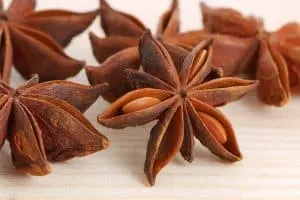
Today, Anise can be used to help with digestion and can be used as an anti-flatulence agent, a relief aid for coughs and colds and can help with insomnia. Usually taken by crushing the seeds into a tea.
Anise Herbal Infusion Tea Bags
Bitter Herbs
That same night they are to eat the meat roasted over the fire, along with bitter herbs, and bread made without yeast. – Exodus 12:8
Bitter herbs are a collective term used for lettuce, horehound, tansy, horseradish, endive and coriander seeds. Bitter herbs were mostly used for food. In fact, the people of Israel were commanded to have bitter herbs with their Passover lamb.
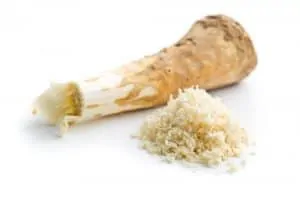
Today, they can be used to help with urinary tract infections, kidney stones, fluid retention, achy joints and gout.
Capers
Also, they are afraid of heights and dangers on the road;
the almond tree blossoms,
the grasshopper loses its spring,
and the caper berry has no effect;
for the mere mortal is headed to his eternal home,
and mourners will walk around in the street; – Ecclesiastes 12:5 (CSB)

Displaying a prism of colors on string like petals, the flowering caper plant grows on the mountains, rocks and walls of Israel, including the Temple Mount’s Western Wall. As soon as this rare beauty blossoms, however, its seeds are scattered and the flower dies, which is why it symbolizes the shortness of human life in Ecclesiastes.

Found in most food stores, but I prefer these (from Spain). Jansal Valley Capers, 3.5 Ounce
Cassia
and casks of wine from Izal in exchange for your wares: wrought iron, cassia and calamus. – Ezekiel 27:19
Cassia oil was popularly used as anointing oil during Biblical times. Cassia has aromatic properties quite similar to cinnamon.
Cassia comes from the Hebrew word, “kadad” or “ḳetzi’ot” which means to bow the head, to stoop and to strip off. This is clearly a picture of humility. Cassia is one of the 4 fragrant components in the Holy Anointing Oil. Cassia bark is aromatic, with the flavor and aroma of cinnamon, just fainter. The outer surface is rough and a mixture of grey and brown while the inside bark is smoother and reddish-brown. Like cinnamon the leaves of the cassia shrub are first stripped off and then the bark is ground into a fine powder. This portrays clearly how Yeshua sacrificially laid down His own life and His willingness to empty Himself out and be stripped of His divine rights.
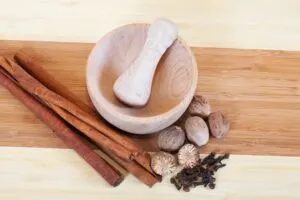
This fragrance reminds us to honor others and follow the example of the Servant of all who was willing to take on his self everything that offended God. This is an oil that speaks of humility, pride being stripped away, and a servant heart emerging in the life of a person. Cassia oil is also the most antiseptic of all known essential oils and is considered by many as a tonic and stimulant
Today, Cassia can be used as natural hair care, coloring and conditioning. The leaves are harvested, dried, and ground into a powder used for natural hair care. Cassia oil can also treat nausea.
The New Jerusalem ‘Cassia’ Anointing Oil – 7.5ml
Cinnamon
“Take the following fine spices: 500 shekels of liquid myrrh, half as much (that is, 250 shekels) of fragrant cinnamon, 250 shekels of fragrant calamus,..” – Exodus 30:23
I have perfumed my bed
with myrrh, aloes and cinnamon. – Proverbs 7:17
Cinnamon, once considered more precious than gold, has some amazing medicinal benefits. The bark, where the oil comes from, was traditionally collected for anointing oil, as well as perfume.
It is not indigenous to Israel, but rather brought in by traders from Ceylon (Sri Lanka) and India.
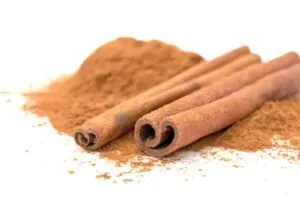
Today, cinnamon can be used for athlete’s foot, indigestion, improve brain function, helps lower blood glucose levels, among many others. And, of course, as a food seasoning.
Ground Cinnamon – Holy Land Spices
(shipped from the Holy Land)
Coriander
The people of Israel called the bread manna. It was white like coriander seed and tasted like wafers made with honey. – Exodus 16:31
The fresh leaves of the plant are cilantro!
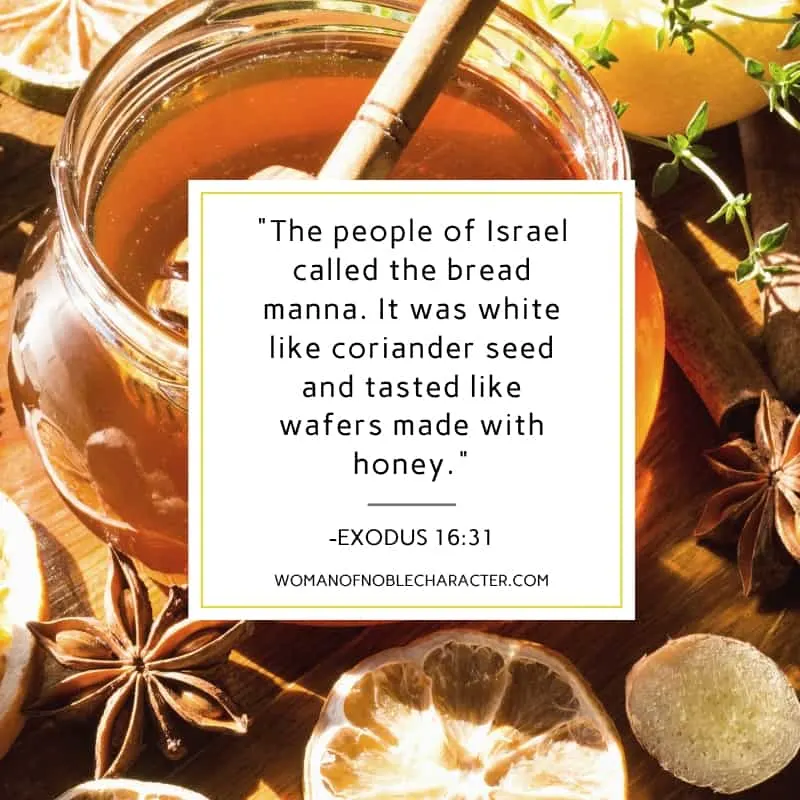
Coriander is the main spice for seasoning falafel balls – that great Israeli favorite made from chickpeas. Also makes a wonderful seasoning for rice, fish and mixed veggies.
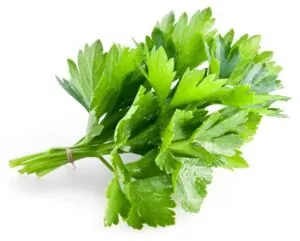
Ground Coriander Seasoning – Holy Land Spices
Shipped direct from the Holy Land.
Cumin
When he has leveled the surface,
does he not sow caraway and scatter cumin?
Does he not plant wheat in its place,
barley in its plot,
and spelt in its field? – Isaiah 28:25
The ancient Israelites took cumin seeds, dried them, and used them to flavor their food.
Today, cumin can help with digestion, cardiovascular disease, urinary disorders, and fever.
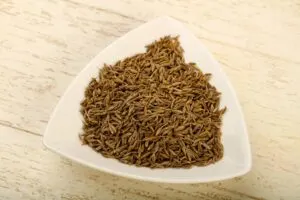
Ground Cumin Seasoning – Holy Land Spices
Shipped direct from the Holy Land
Dill
“Woe to you, teachers of the law and Pharisees, you hypocrites! You give a tenth of your spices—mint, dill and cumin. But you have neglected the more important matters of the law—justice, mercy and faithfulness. You should have practiced the latter, without neglecting the former.” – Matthew 23: 23
Dill seed and weed (leaves) were used for medicine and for culinary purposes. Today we use them in pickling spices, in bread, fish and potato salad.
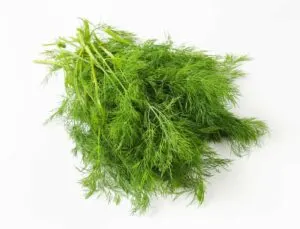
Shipped direct from the Holy Land
Frankincense
Then the Lord said to Moses, “Take fragrant spices—gum resin, onycha and galbanum—and pure frankincense, all in equal amounts, – Exodus 30:34
Most popularly known for incense, Frankincense was used during ceremonial offerings and considered an article of luxury.
Today, it can be used as an analgesic, antidepressant and sedative, in addition to being a powerful healing herb. Frankincense is also a primary ingredient in stress-reducing incenses.
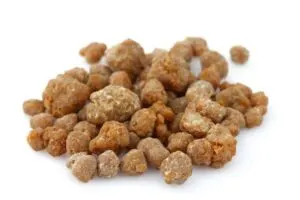
High quality ceremonial anointing oil, useful especially for those who are working with spiritual needs in synagogues and churches, preparation for a ministry, dedication and holiness. Shipped from the Holy Land.
Garlic
We remember the fish we ate in Egypt at no cost—also the cucumbers, melons, leeks, onions and garlic. – Numbers 11:5
Garlic has been used as both food and medicine in many cultures for thousands of years, dating back to when the Egyptian pyramids were built.
Today, garlic is used to help prevent heart disease, including atherosclerosis or hardening of the arteries (plaque buildup in the arteries that can block the flow of blood and may lead to heart attack or stroke), high cholesterol, high blood pressure, and to boost the immune system. Garlic may also help protect against cancer.
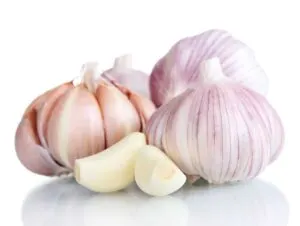
Garlic Flakes Seasoning – Holy Land Spices
(Shipped from the Holy Land)
Hyssop
He spoke about plant life, from the cedar of Lebanon to the hyssop that grows out of walls. He also spoke about animals and birds, reptiles and fish. – 1 Kings 4:33
Then Moses summoned all the elders of Israel and said to them, “Go at once and select the animals for your families and slaughter the Passover lamb. Take a bunch of hyssop, dip it into the blood in the basin and put some of the blood on the top and on both sides of the doorframe. None of you shall go out of the door of your house until morning. – Exodus 12:21–22
Later, knowing that everything had now been finished, and so that Scripture would be fulfilled, Jesus said, “I am thirsty.” A jar of wine vinegar was there, so they soaked a sponge in it, put the sponge on a stalk of the hyssop plant, and lifted it to Jesus’ lips. – John 19:28–29
Hyssop is a sweet-smelling plant from the mint family. It was used in many ceremonial rituals of the Israelites, as burning hyssop typically meant an inner cleansing.
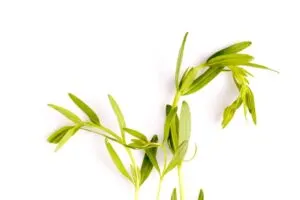
Inhabitants of the Holy Land have known for centuries that Hyssop is a memory enhancer and was used during Biblical times as a purifier and in anointing.
Spice of Life Hyssop from the Holy Land
Spice of Life Hyssop from the Land of Milk and Honey comes from the mountains overlooking the Sea of Galilee.
Leeks, Onions and Chives
“…The rabble with them began to crave other food, and again the Israelites started wailing and said, “If only we had meat to eat! We remember the fish we ate in Egypt at no cost—also the cucumbers, melons, leeks, onions and garlic. But now we have lost our appetite; we never see anything but this manna!” Numbers 11:4-6
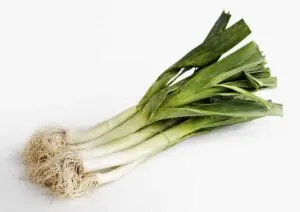
The Israelites got tired of manna and wanted to be back in slavery eating melons, leeks, onions and garlic. Sometimes you just can’t please anyone. Chives are in this family and are one of the herbs grown by most gardeners. We use these as culinary herbs on salads, vinegar, in breads, in soups, as well as garnishes.
Mandrake
During wheat harvest, Reuben went out into the fields and found some mandrake plants, which he brought to his mother Leah. Rachel said to Leah, “Please give me some of your son’s mandrakes.”
But she said to her, “Wasn’t it enough that you took away my husband? Will you take my son’s mandrakes too?”
“Very well,” Rachel said, “he can sleep with you tonight in return for your son’s mandrakes.” – Genesis 30:14–15
The mandrakes send out their fragrance,
and at our door is every delicacy,
both new and old,
that I have stored up for you, my beloved. – Song of Songs 7:13
In Genesis, soon after the barren Rachel obtained mandrakes from Reuben, her sister Leah’s first son, “God opened [Rachel’s] womb” and “she conceived and bore a son” (Genesis 30:22–23). Apparently, the humanlike form of mandrakes was thought to be beneficial in the conception of humans. Throughout history, imaginative drawings of the plant have emphasized this anthropomorphic quality by depicting the roots as legs.
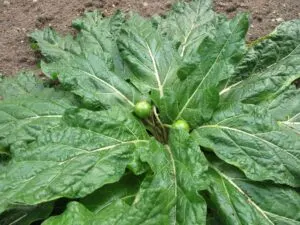
At the beginning of winter, the plant produces a rosette of dark green leaves and purple flowers, but in this season the scent is not pleasant. In the spring, however, when the fruits ripen and become yellow, the intoxicating scent attracts both man, as an aphrodisiac, and animal.
A somewhat “controversial” of the spices in the Bible, given its use by Rachel.
Mint
Woe to you Pharisees, because you give God a tenth of your mint, rue and all other kinds of garden herbs, but you neglect justice and the love of God. You should have practiced the latter without leaving the former undone. – Luke 11:42
Mint has been used for thousands of years as a culinary herb and for medicine. It remains an important biblical spice.
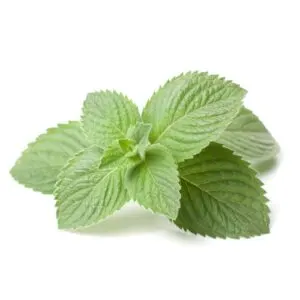
Today, mint can help with stomach aches, poor digestion, fever, hiccups, earaches and sinuses. I use fresh mint leaves and this mint tea to help with my nausea from chemo.
A special blend of tea with freshly dried Mediterranean mint known as nana. 25 tea bags. Made in the Holy Land. Shipped to you direct from Jerusalem.
Mustard
He replied, “If you have faith as small as a mustard seed, you can say to this mulberry tree, ‘Be uprooted and planted in the sea,’ and it will obey you. – Luke 17:6
He told them another parable: “The kingdom of heaven is like a mustard seed, which a man took and planted in his field. Though it is the smallest of all seeds, yet when it grows, it is the largest of garden plants and becomes a tree, so that the birds come and perch in its branches.” – Matthew 13:31-32
One of Jesus’ most famous parables was about the mustard seed. This may be because mustard grew so abundantly in Palestine. Used for many things, even today as an important spice in the Bible.

Today, mustard can be used for sore throats, muscle and back relaxing, and as a hair conditioner to treat damaged hair.
Mustard Seeds from the Holy land make an excellent addition to meat and fish sauces.
Shipped from Jerusalem.
Myrrh
I have perfumed my bed with myrrh, aloes, and cinnamon. – Proverbs 7:17
In Biblical times, it was sold as a spice or an ingredient of the anointing oil used in the Tabernacle, or as a salve for the purification of the dead. In the Roman world, it was considered a natural remedy for almost every human affliction, from earaches to hemorrhoids. A key of the spices in the Bible.
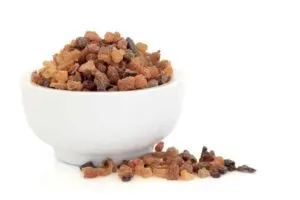
Today, myrrh can be used as a cleansing agent, and to help with ulcerated throats and mouth sores. (I use this to help with the mouth sores from my chemo, as well)
Pure Myrrh Oil from the Holy Land
Shipped from the Holy Land
Parsley
That same night they are to eat the meat roasted over the fire, along with bitter herbs, and bread made without yeast. – Exodus 12:8
Considered a bitter herb in the Bible, but today used for salads, potato – as an ingredient in various recipes with rice dishes, fish, fried chicken, lamb, steaks, meat or vegetable dishes.
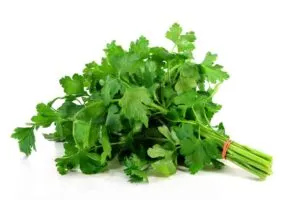
Parsley – Holy Land Spices – Pereg
(Shipped from the Holy Land)
Rue
“Woe to you Pharisees, because you gave God a tenth of your mint, rue and all other kinds of garden herbs, but you neglect justice and the love of God…” Luke 11: 42
It was believed to heal the stings of bees, wasps and scorpions. It was also used for seasoning dishes. An less common contemporary spice, but an important one of the biblical spices.
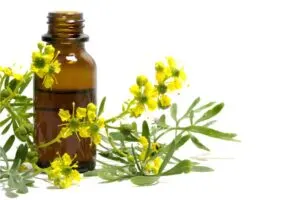
Rue Herb – Ruta Graveolens L # Herba Organica # Herb-of-grace, Common Rue (100g)
Saffron
nard and saffron,
calamus and cinnamon,
with every kind of incense tree,
with myrrh and aloes
and all the finest spices. – Song of Songs 4:14
The most expensive spice in the world today was also very dear during ancient times. Because of its distinct yellow color, saffron was used not only for flavoring but to make ancient dyes as well. Ancient peoples used saffron to treat stomach upsets, bubonic plague, and smallpox.
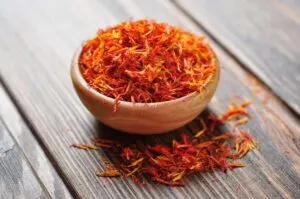
Today, recent studies have indicated possible health benefits, including cancer-inhibiting properties, aiding in allergies, help combat depression, and promote a feeling of fullness (in terms of diet).
Rumi Spice Saffron, Square Glass Jar, 1 g
(from the Middle East)
Sorrel (Hibiscus)
“That same night they are to eat the meat roasted over the fire, along with bitter herbs and bread made without yeast.” Exodus 12: 8
Sorrel is one of the herbs that is the first to come up in the spring. It has a lemony flavor and is considered one of the bitter herbs eaten with the roasted lamb on Passover night. Other bitter herbs are chicory, endive, parsley and watercress. In the Passover celebration bitter herbs signify the bitter life in slavery.

Angel Brand Dried Sorrel 4.5 oz (2 Pack)
Thistle
To Adam he said, “Because you listened to your wife and ate fruit from the tree about which I commanded you, ‘You must not eat from it,’
“Cursed is the ground because of you;
through painful toil you will eat food from it
all the days of your life.
It will produce thorns and thistles for you,
and you will eat the plants of the field.” – Genesis 3: 17 – 18
Great for liver detox and to fight radicals. Can add to milk or water. Can also add to food for a nutrient booster. A surpisingly important of the spices in the Bible.
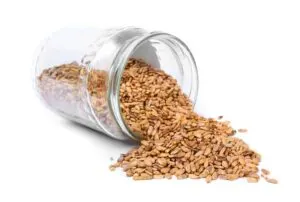
Wormwood
The third angel blew his trumpet, and a great star fell from heaven, blazing like a torch, and it fell on a third of the rivers and on the springs of water. The name of the star is Wormwood. A third of the waters became wormwood, and many people died from the water, because it had been made bitter – Revelation 8:10-11 (ESV)
Used to make the alcoholic beverage – absinthe. Also used as a moth repellent and incense. Not a “normal” of the spices in the Bible.
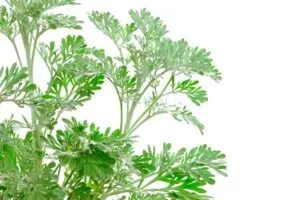
Also Known As – Artemisia absinthus, Absinthe, Absinthe Wormwood, and Old WomanÍs Weed Wormwood contains constituents that may be toxic if ingested in large amounts and for extended periods of time. Not to be used while pregnant.
Bulk Herbs: Wormwood (Organic)
Cooking with Biblical Spices
If you’d like to try your hand at cooking with spices in the Bible or even foods relevant in biblical times, this is an amazing cookbook for you to try.
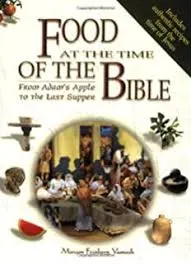
What did people eat at the time of the Bible? How did they grow their food, store it, trade in it and prepare it? What are the symbolic meanings behind various foods? Take a fresh look at food through the eyes of Scripture. What was the ‘forbidden fruit’ in the garden of Eden? What was in the bowl that Jesus dipped into at the Last Supper
In this beautifully illustrated full-color book, you will find a uniquely in-depth survey of every aspect of food in the Bible. You’ll learn what people ate and drank in Bible days, plus how they produced their food, stored it, sold it and prepared it. Discover the symbolic meanings behind the biblical menu items such as pomegranates and figs and ‘milk and honey.’ Try the food of the bible for yourself with easy recipes that date back to Bible days. Why not bake bread based on ingredients found in Ezekiel 4:9? Whether you’re a food connoisseur yourself or just interested in understanding the Bible better, At the end of the book is a section on recipes which could have been prepared in ancient times. we’re sure that this one-of-a-kind book will suit your taste!
Here’s another great Bible recipe cookbook:


Have you thought much about the spices in the Bible and how we still use many of them today? Have you tried cooking with biblical spices? Tell me in the comments. I’d love to hear about your experience.
Because of Him,
Sue
